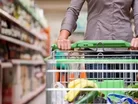Woolworths Releases Report on Future Consumers and Shopping Trends

In their “Future of Fresh” report, Woolworths combines research and market trends to predict how Australians will be shopping in 2034, 20 years from now. Research for the report was conducted by social demographer Mark McCrindle and Woolworths’ “Chair of Innovation,” Queensland University of Technology professor Jan Recker.
The report shares Woolworths’ view of the future – that the shift towards fresh, local produce will continue, and a combination of new technology will aid shoppers in making the perfect customised shopping experience.
The report mainly focused on the up and coming generation – “Generation Alpha,” or people born after 2010. The contributors to the report believe that this generation will take a hybrid approach to shopping, by buying some products (like pantry and dry items) online and continuing to purchase fresh, hyper-local produce in stores.
The more innovative and immersive shopping experience is one that Woolworths is looking forward to supporting.
"As the Fresh Food People, Woolworths has a long term commitment to providing fresh, local and affordable produce for our 18 million weekly customers,” Tjeerd Jegen, Managing Director of Woolworths Supermarkets said. “As part of this commitment, we have had to evolve to meet the needs and tastebuds of a diverse and ever-changing Australia.
“This unique ability to look at how Aussies shop has enabled us to track the changing needs and wants of families over the past few decades and look at how this will change in the future. The Future of Fresh report provides a unique insight into the shopping experience of 2034, a fresh future we're excited to be a part of with our customers."
Key Findings
The Future of Fresh contributors predicted that Generation Alpha will be Australia’s most educated population, with 90 percent predicted to complete a Year 12 education. They also believe that a third of Alpha shoppers will choose not to have children, shifting the most common household type from a nuclear family to a couple-only family structure.
The report also predicted that these new families will be nearly three times more likely to shop online than the average Australian. Also, the majority of payments is projected to be cash free.
As for buying habits, Australian Gen Alphas is expected to put a lot of emphasis on the location where their food was grown and produced when making purchase decisions. And value won’t just mean a good deal; there will be a concerted focus on lifestyle, health and ethics when considering the value of a product.
Information sourced from Sunshine Coast Daily
- What do digitally advanced organisations have in common?Leadership & Strategy
- Interview: The state of regtech report in Asia-PacificTechnology
- Sustainability in business: What CEOs are actually sayingSustainability
- Report: Sustainable energy advancement remains flat in AsiaSustainability



